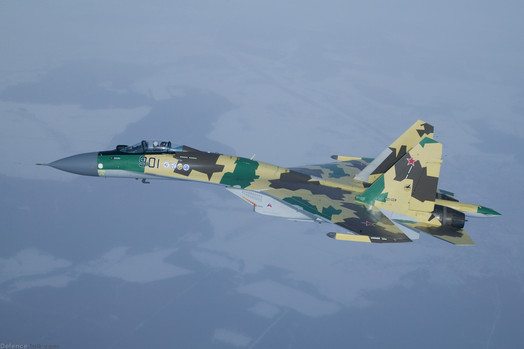Russia, a key arms exporter to the Middle East, announced Thursday it was banning the sale of all weapons to Libya, in line with its support of UN sanctions against Moamer Kadhafi’s regime.
President Dmitry Medvedev signed a decree banning the “export, sale and delivery to Libya… of all kinds of weapons and associated materials,” the Kremlin said in a statement.
The decree also stipulates that all cargo bound for or from Libya will be carefully inspected if there is “information that gives reason to believe that the cargo carries material subject to the ban.”
The move comes after Russia joined other UN Security Council permanent members in ordering an arms embargo against Libya and other sanctions against Kadhafi’s family.
But there has been concern in the Russian arms export industry about the impact of the ban, which officials have said could cost the country $4 billion in arms exports.
The head of state arms exporter Rosoboronexport, Anatoly Isaikin, vowed that Russia would “strictly abide by the conditions” set out in the UN sanctions.
“Libya is the only North African country with whom there can now be no negotiations about the delivery of military technology,” he told the Interfax news agency.
Isaikin emphasised that the figure of $4 billion of lost exports quoted by the head of state umbrella holding Russian Technologies, Sergei Chemezov, was “approximate” and referred to future deals.
He said that bottom line losses would for the moment be “minimal”.
“It is true that contracts have been signed but have not come into force. Money has not been transferred, advances have not been received,” he said.
Libyan Defence Minister Yunis Jaber had gone on a major spree during a January 2010 visit to Moscow, signing 1.3 billion euros ($1.8 billion) worth of deals including for six Yak-130 military planes.
Libya had also been expected to become the first foreign buyer of Russia’s new Su-35 fighter and a contract worth $800 million for 12-15 planes had been ready for signing, reports have said.
A range of other contracts for helicopters and missile systems were also being discussed.
Defence Minister Anatoly Serdyukov has said Moscow was “really alarmed” by the effect the revolts sweeping the Arab world could have on its weapons exports.
Russia had a swelling order book for contracts from Libya worth $2.0 billion while negotiations had been in progress for deals worth $1.8 billion more, Interfax has reported
Moscow impressed its Western partners by signing on swiftly to the arms embargo against Libya.
But it has also implemented similar measures against Iran, notably by refusing to fulfill a contract to deliver S-300 air defence missiles.
Isaikin said Russia would always abide by UN sanctions against Iran but, unlike Libya, the measures against the Islamic republic did not preclude the sale of all arms from Russia.
“There are military materials that do not fall under these restrictions. And this means that we have the right to have negotiations with Iran,” he said, without explaining what Russia could still sell to Iran.










